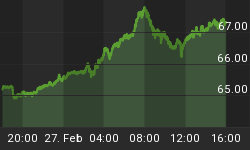China’s ‘Brave New World’ move towards a mandatory ‘social credit’ system for all citizens by 2020 has already blocked people from 11 million flights and 4.25 million high-speed train trips, according to Chinese state-run media.
While it sounds like an economic bust for transportation, state-run media are tossing the figures around as proof of the program’s success, with the Global Times citing a senior official suggesting that the form of punishment meted out by those with poor social credit would incentivize them to become better citizens.
The figures were said to be as of “the end of April”, though no starting point was mentioned.
Speaking at a credit development forum in Beijing on Saturday, Hou Yunchun, former deputy director of the State Council’s development research center—the center responsible for creating “Planning Outline for the Construction of a Social Credit System”—said the system was needed so that “discredited people become bankrupt”.
“If we don’t increase the cost of being discredited, we are encouraging discredited people to keep at it,” the Global Times cited Hou as saying.
The authorities have also used the social credit system to publish the names of 33,000 companies who have violated certain laws and regulations.
But the question is, what determines poor social standing?
China’s social credit system—which Western media have likened to the Netflix series Black Mirror—will “forge a public opinion environment where keeping trust is glorious. It will strengthen sincerity in government affairs, commercial sincerity, social sincerity and the construction of judicial credibility”.
The system is similar to a financial credit score, but based on character and concocted from big data and artificial intelligence algorithms. Upstanding citizens have high scores, while others (public nuisances, dissidents, etc) will be ostracized, marginalized—or kicked off trains and planes, for instance.
Related: The Five Most Important Market Indicators
In the case of transportation, China is using the social credit system to punish citizens for bad behavior in various categories—from bad behavior on planes and trains, trying to get a free ride by using an expired ticket, contempt of court, or even getting caught smoking where they shouldn’t.
In effect, China’s social credit system is a series of mini-blacklists because the punishment is intended to fit the crime. Bad behavior on planes and trains means you’re not getting on one.
The system could also prevent people from getting loans or jobs. It could even limit their access to the internet, reports say. It could determine where children end up going to school.
"Regarding people who have serious trust-breaking behavior, privately operated schools must limit their children's ability to attend high-tuition private schools, to practically carry out the responsibility of disciplining people with bad credit," the authorities wrote.
And debtors can be banned from travel, four-and-five-star hotels, or making any luxury purchases.
In the meantime, social credit crimes are made very public—a tactic the Chinese have been using since 2013. By the end of last year, the public list of debtor had reached 8.8 million names, and some provinces even go as far as to advertise caricatures of named debtors on buses, public noticeboards and at movie theaters.
By 2020, all of China's 1.4 billion citizens will receive a personal social credit score, determined by state-run facial recognition, artificial intelligence, smart glasses and other technologies. Most recently, reports have emerged that Chinese companies have begun monitoring their employees’ brain waves in an emotional intelligence sweep designed to tell factory bosses whether their hired hands are operating at full capacity.
By Josh Owens for Safehaven.com
More Top Reads From Safehaven.com:
















